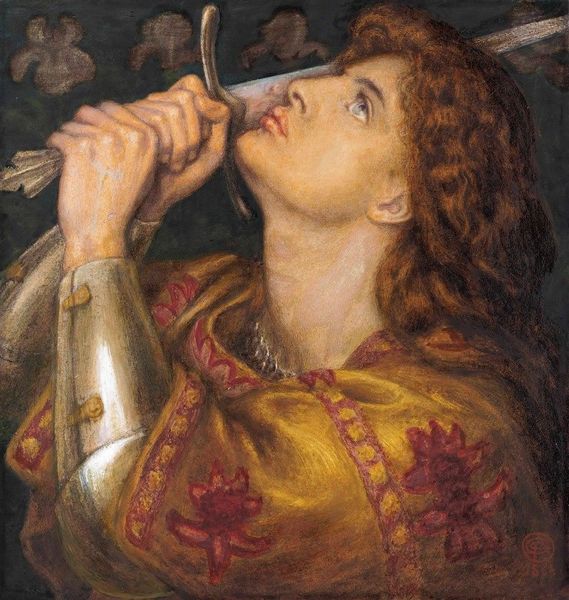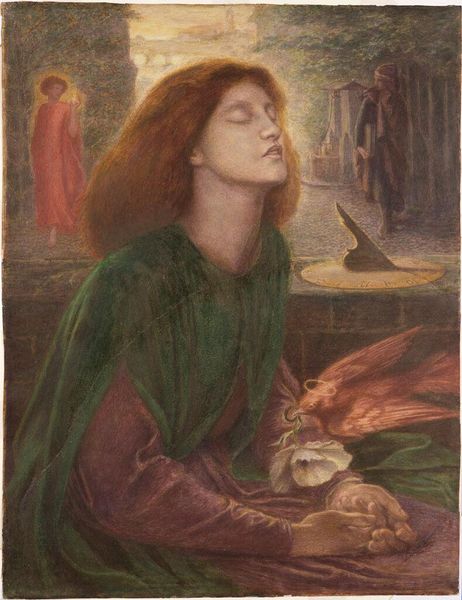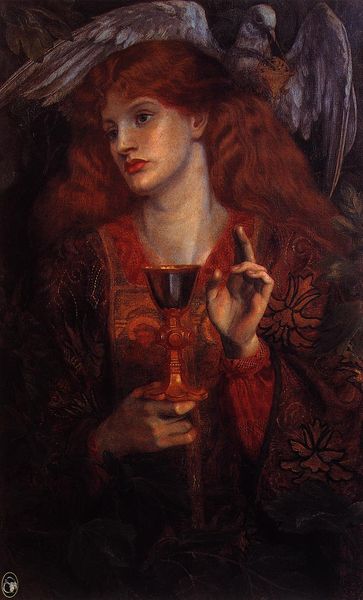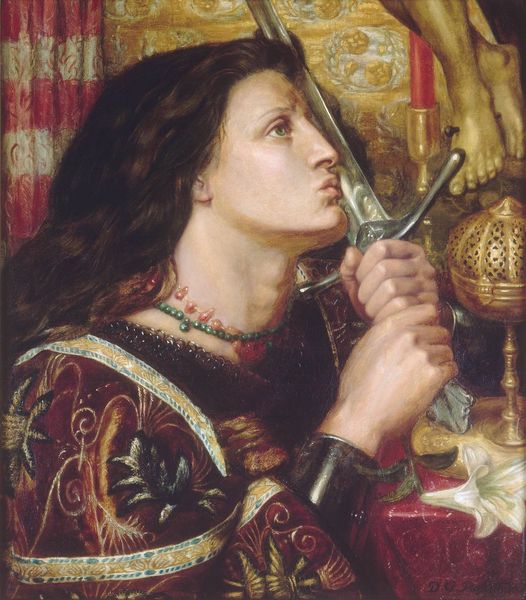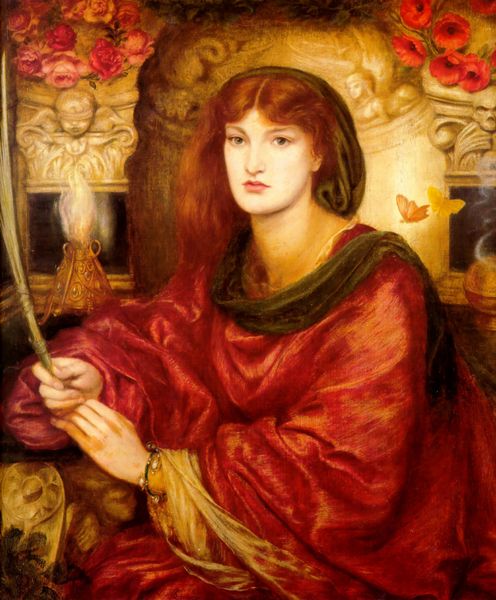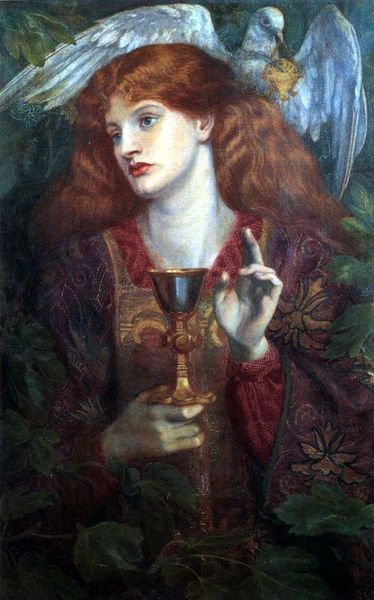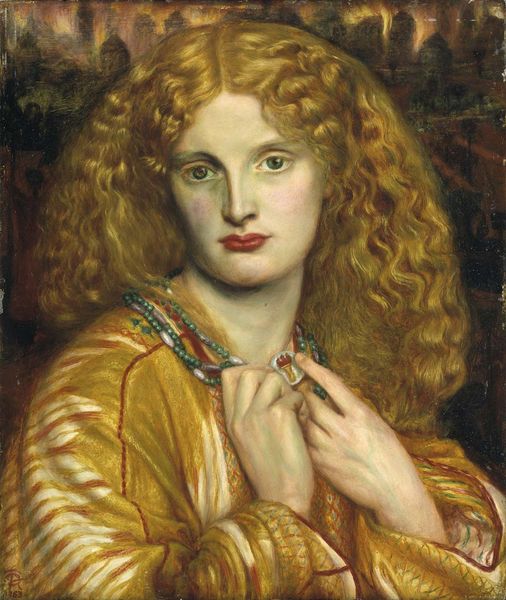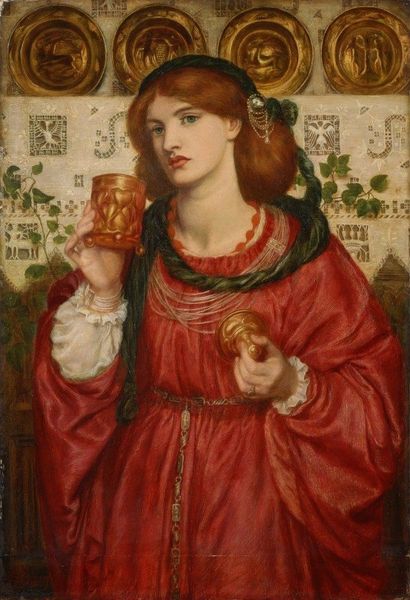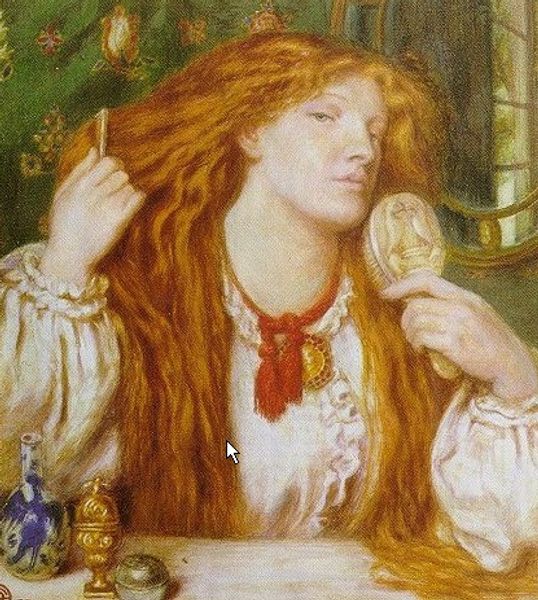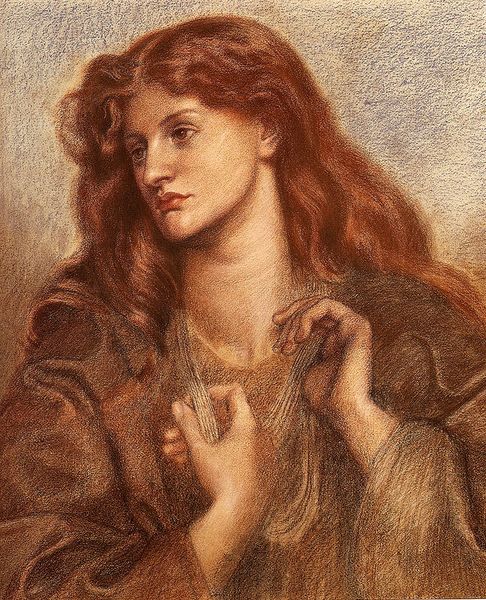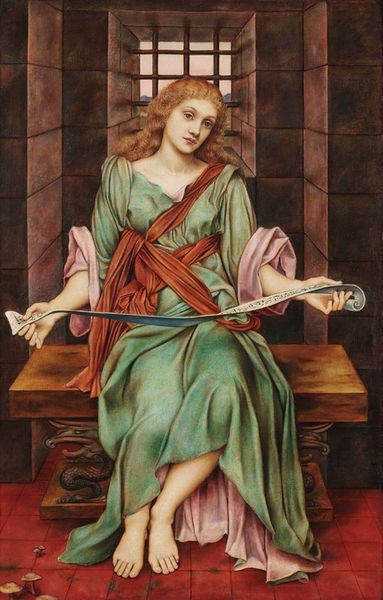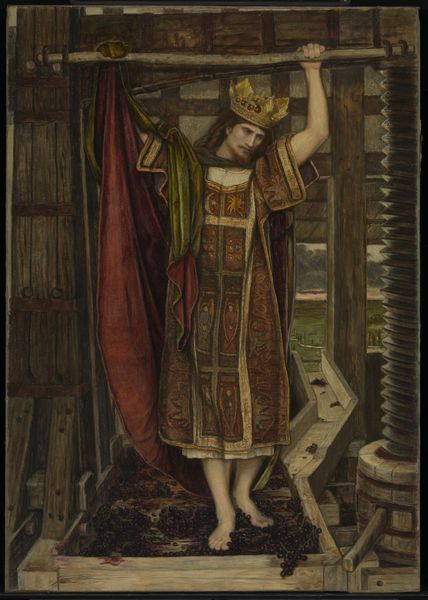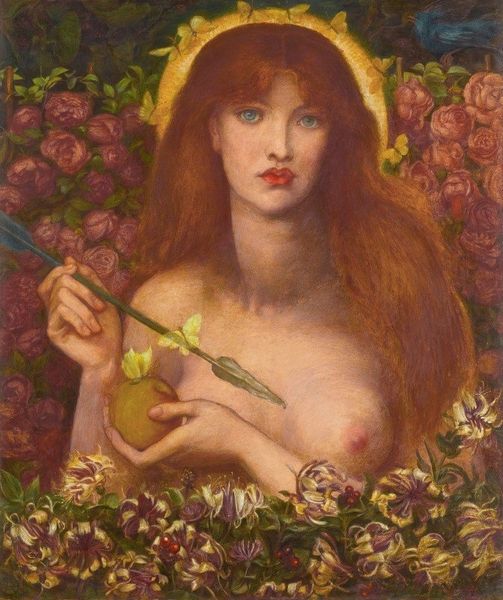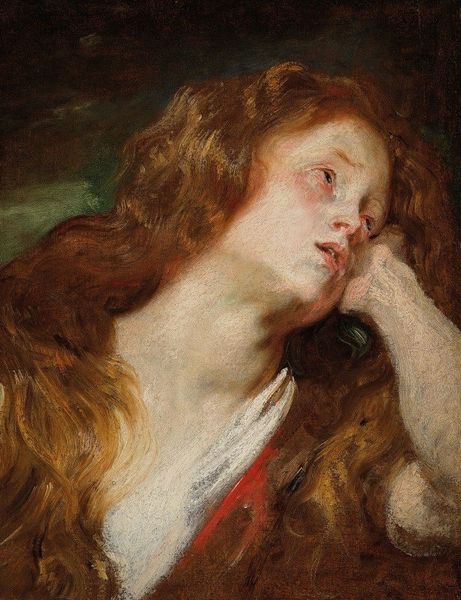
Joan of Arc 1882
0:00
0:00
dantegabrielrossetti
Fitzwilliam Museum (University of Cambridge), Cambridge, UK
Copyright: Public domain
Editor: This is Dante Gabriel Rossetti’s "Joan of Arc," painted in 1882, using oil on canvas. The way she gazes upward with such intensity, clutching the sword… It's powerful, almost reverent. What strikes you most about this piece? Curator: Rossetti’s Joan is a potent symbol, not just of French nationalism but of the complicated and often brutal experience of women in power. This isn't merely a portrait; it's an interrogation of gender and leadership in the late 19th century. Consider the Pre-Raphaelite movement, its fascination with medieval subjects, and Rossetti's personal obsessions. How do these influence our perception of Joan as both a saint and a warrior? Editor: So, it's less about historical accuracy and more about exploring societal ideas about women? Curator: Precisely. Rossetti uses Joan to comment on Victorian ideals of femininity, pushing back against them perhaps. The redness, her intense gaze...does she seem defiant, or idealized to you? Does this ‘romanticised’ interpretation obscure or clarify her role? Editor: I think I initially saw her as idealized, but now I also see the defiance in her eyes. Almost as though Rossetti acknowledges both the saint and the revolutionary. It's as if he uses Joan to both honor and question the place of women. Curator: Exactly! Rossetti encapsulates her defiance. Understanding the context in which it was made gives so much more to explore and question! Editor: I learned that, sometimes, a historical figure isn't really about the history at all, but what the artist wants to express in their time.
Comments
No comments
Be the first to comment and join the conversation on the ultimate creative platform.
